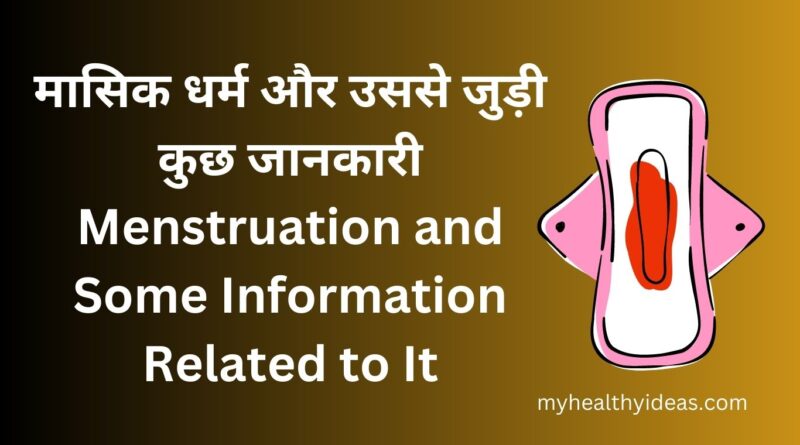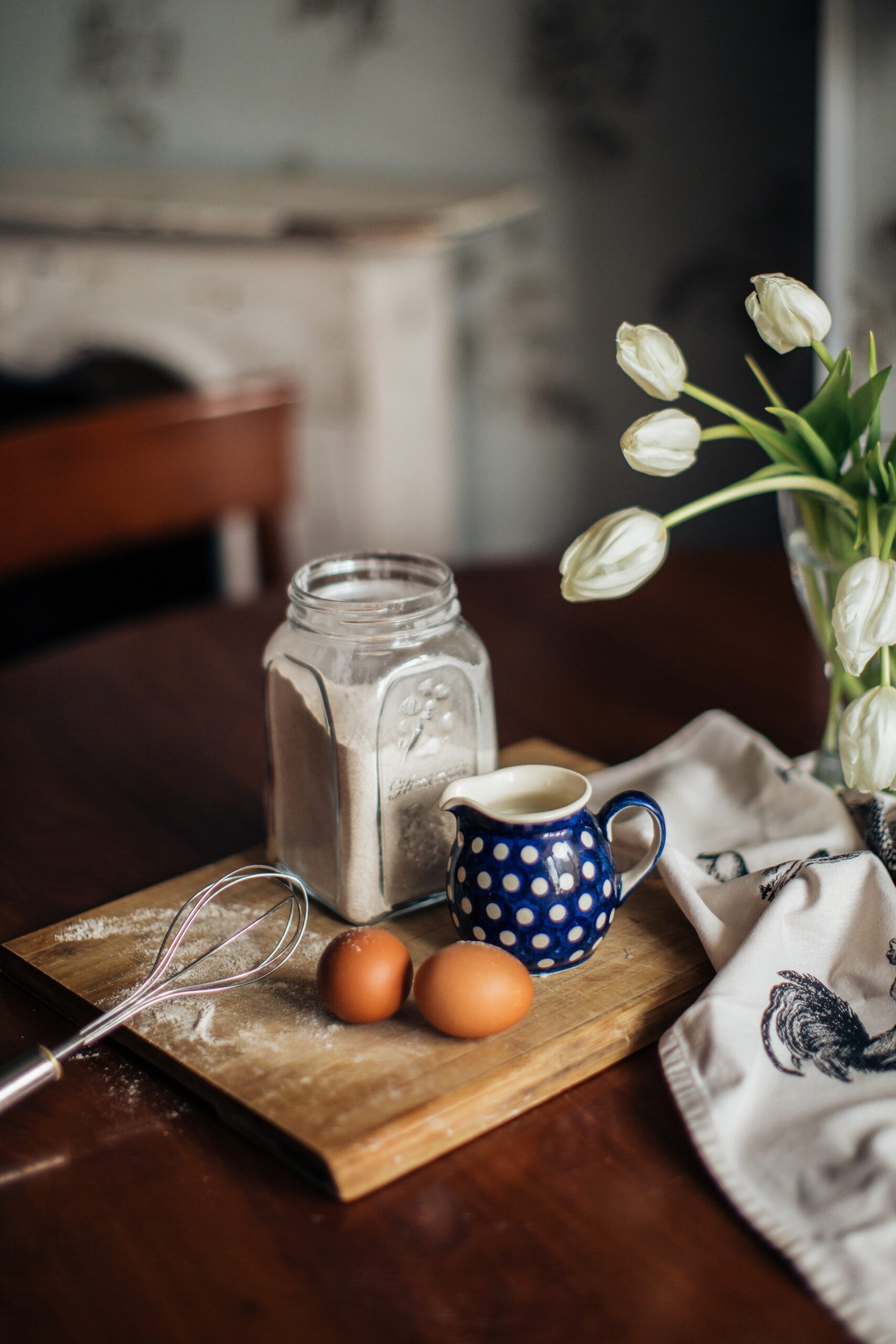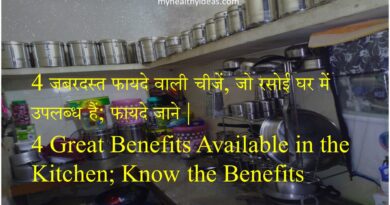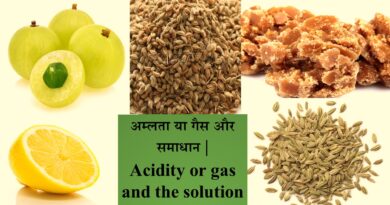मासिक धर्म और उससे जुड़ी कुछ जानकारी | Menstruation and Some Information Related to It
Table of Contents
मासिक धर्म और उससे जुड़ी कुछ जानकारी
पीरियड्स क्या है?
पीरियड्स, जिसे मासिक धर्म के रूप में भी जाना जाता है, एक प्राकृतिक प्रक्रिया है जो महिला प्रजनन अंगों वाले लोगों की प्रजनन प्रणाली में होती है। इसमें गर्भाशय के अस्तर को बहाया जाता है, जिसके परिणामस्वरूप योनि से रक्तस्राव होता है।
मेन्सुरेशन किस उम्र में शुरू होता है?
माहवारी आमतौर पर लड़कियों में 10 से 15 साल की उम्र के बीच शुरू होती है, हालांकि यह अलग-अलग हो सकती है। मासिक धर्म की शुरुआत के लिए औसत आयु, जिसे मेनार्चे के रूप में जाना जाता है, लगभग 12 वर्ष की होती है। हालाँकि, कुछ लड़कियां 8 साल की उम्र में शुरू हो सकती हैं, जबकि अन्य 16 या उससे अधिक उम्र तक शुरू नहीं कर सकती हैं।
यह याद रखना महत्वपूर्ण है कि प्रत्येक व्यक्ति अद्वितीय है, और मासिक धर्म का समय आनुवंशिकी, पोषण, समग्र स्वास्थ्य और पर्यावरणीय कारकों सहित विभिन्न कारकों से प्रभावित हो सकता है।
पीरियड्स शुरू होने पर क्या होता है?
पीरियड्स के दौरान, व्यक्ति पेट में ऐंठन, सूजन, स्तन कोमलता, मिजाज और थकान सहित विभिन्न शारीरिक और भावनात्मक लक्षणों का अनुभव कर सकते हैं। यह ध्यान रखना महत्वपूर्ण है कि मासिक धर्म के साथ हर किसी का अनुभव अलग-अलग हो सकता है।
माहवारी को प्रबंधित करने और बेचैनी को कम करने के लिए, यहां कुछ सामान्य सुझाव दिए गए हैं:
मासिक धर्म उत्पादों का उपयोग करें:
विभिन्न प्रकार के उत्पादों जैसे पैड, टैम्पोन, मासिक धर्म कप या पीरियड अंडरवियर में से चुनें। आराम, सुविधा और व्यक्तिगत पसंद के मामले में आपको जो सबसे अच्छा लगे उसे चुनें।
व्यक्तिगत स्वच्छता बनाए रखें:
गंध और संभावित संक्रमण को रोकने के लिए, आदर्श रूप से हर 4-8 घंटे में अपने मासिक धर्म उत्पाद को नियमित रूप से बदलें। अपने जननांग क्षेत्र को हल्के साबुन और पानी से साफ करें।
दर्द को प्रबंधित करें:
ओवर-द-काउंटर दर्द निवारक जैसे इबुप्रोफेन या एसिटामिनोफेन (स्वास्थ्य देखभाल पेशेवर से परामर्श करके लें) मासिक धर्म में ऐंठन को कम करने में मदद कर सकते हैं। पेट के निचले हिस्से में गर्मी लगाने या गर्म पानी से स्नान करने से भी राहत मिल सकती है।
सक्रिय रहें:
हल्का व्यायाम या शारीरिक गतिविधि, जैसे चलना या योग, पीरियड्स के दौरान बेचैनी को कम करने और मूड को बेहतर बनाने में मदद कर सकता है।
संतुलित आहार लें:
मासिक धर्म के दौरान खो जाने वाले पोषक तत्वों की भरपाई के लिए विटामिन, खनिज और आयरन से भरपूर पौष्टिक आहार शामिल करें। कुछ लोग पाते हैं कि कैफीन, नमक और चीनी का सेवन कम करने से लक्षणों को प्रबंधित करने में मदद मिल सकती है।
हाइड्रेटेड रहें:
हाइड्रेटेड रहने के लिए खूब पानी पिएं, जो सूजन को कम करने और थकान दूर करने में मदद कर सकता है।
पर्याप्त आराम करें:
अपने शरीर को सुनें और अपनी अवधि के दौरान खुद को पर्याप्त आराम दें। थकान को कम करने और समग्र कल्याण में सहायता के लिए अच्छी नींद लें।
अपने मासिक धर्म चक्र को ट्रैक करें:
अपने मासिक धर्म पर नज़र रखने से आपको यह अनुमान लगाने में मदद मिल सकती है कि वे कब होंगे और पहले से तैयारी करें।
याद रखें, यदि आपके मासिक धर्म के दौरान आपको कोई चिंता या गंभीर लक्षण हैं, तो व्यक्तिगत सलाह और मार्गदर्शन के लिए स्वास्थ्य देखभाल पेशेवर से परामर्श करना सबसे अच्छा है।
Menstruation and Some Information Related to It
What is Periods?
Periods, also known as menstruation, is a natural process that occurs in the reproductive system of people with female reproductive organs. It involves the shedding of the uterine lining, which results in bleeding through the vagina.
In which Age mensuration Start?
Menstruation typically starts in girls between the ages of 10 and 15, although it can vary. The average age for the onset of menstruation, known as menarche, is around 12 years old.
However, some girls may start as early as 8 years old, while others may not begin until they are 16 or older. It’s important to remember that every individual is unique, and the timing of menstruation can be influenced by various factors, including genetics, nutrition, overall health, and environmental factors.
What Happened When Periods Start?
During periods, individuals may experience various physical and emotional symptoms, including abdominal cramps, bloating, breast tenderness, mood swings, and fatigue. It is important to note that everyone’s experience with periods can vary.
To Manage Periods and Alleviate Discomfort, here are Some General Tips:
Use Menstrual Products:
Choose from a variety of products such as pads, tampons, menstrual cups, or period underwear. Select what suits you best in terms of comfort, convenience, and personal preference.
Maintain Personal Hygiene:
Change your menstrual product regularly, ideally every 4-8 hours, to prevent odor and potential infections. Clean your genital area with mild soap and water.
Manage Pain:
Over-the-counter pain relievers such as ibuprofen or acetaminophen (take in consultation with a health care professional) may help ease menstrual cramps. Applying heat to the lower abdomen or taking a warm bath can also provide relief.
Stay Active:
Light exercise or physical activity, such as walking or yoga, can help reduce discomfort and improve mood during periods.
Eat a Balanced Diet:
Include nutritious foods rich in vitamins, minerals, and iron to replenish nutrients lost during menstruation. Some people find that reducing caffeine, salt, and sugar intake can help manage symptoms.
Stay Hydrated:
Drink plenty of water to stay hydrated, which can help reduce bloating and relieve fatigue.
Get Adequate Rest:
Listen to your body and give yourself enough rest during your period. Sleep well to help alleviate fatigue and support overall well-being.
Track your Menstrual Cycle:
Keeping track of your periods can help you predict when they’ll occur and prepare in advance.
Remember, if you have any concerns or severe symptoms during your periods, it is best to consult a healthcare professional for personalized advice and guidance.



